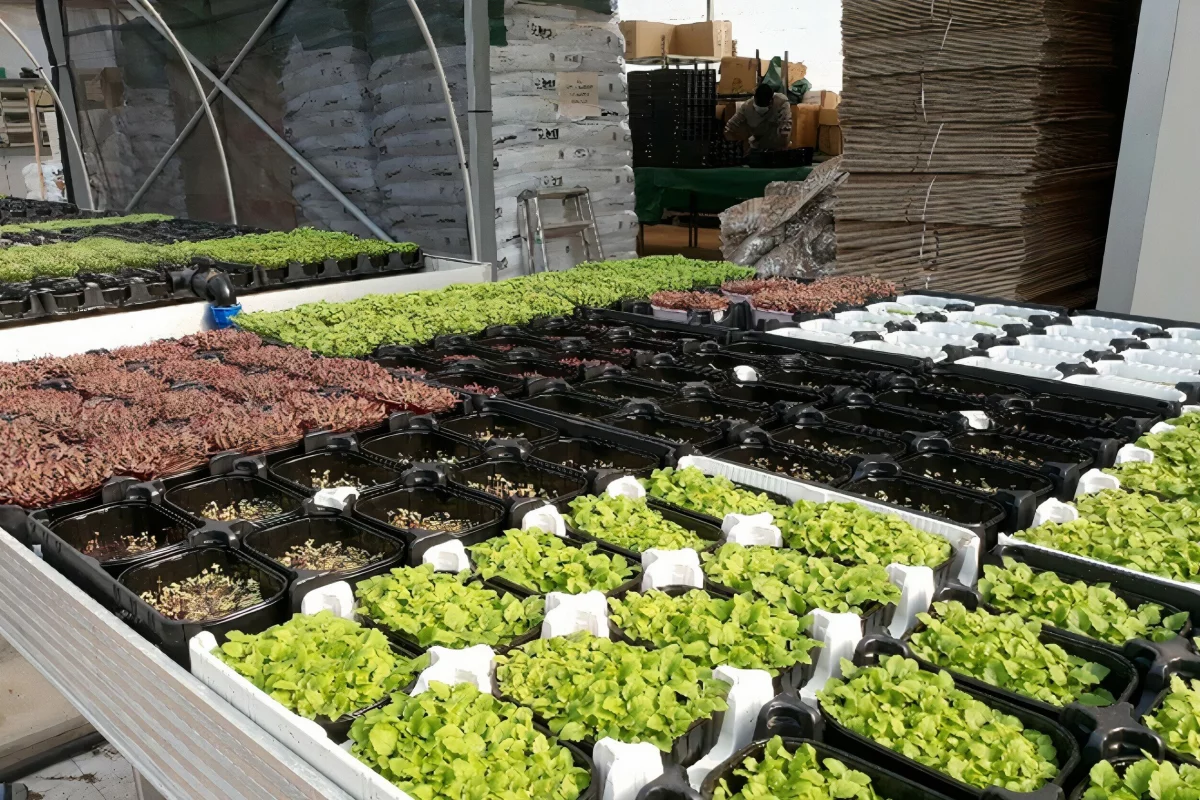With an eye toward creating food for people with certain health conditions, scientists in Italy grew radish, pea, arugula, and Swiss chard plants, precisely controlling certain nutrients. And they did it without any soil.
Working at a commercial microgreen farm in southern Italy, researchers wanted to see if they could tailor the amount of iodine and potassium in a range of vegetables. The greens at this farm are grown in a liquid medium which, the researchers say, made the project easier to undertake.
"Soilless cultivation is considered an advanced, environmentally-friendly agricultural practice for enhancing the quality of fresh vegetables," said the researchers, adding that "soilless systems represent an opportunity to modulate the nutrient solution precisely and efficaciously."
After some experimentation with different growth medium formulations, the team was able to produce vegetables that had 14 times the iodine content of plants that weren't grown in a special formula.
Iodine is a critical nutrient for proper thyroid health. It is commonly found in fortified table salt, milk, fish, and eggs but with a call for reduced salt intake by health organizations and a move toward more vegan lifestyles, it is slowly working its way out of the diet. By boosting its presence in other foods, the researchers feel they could help support the health of consumers.
Next, the scientists were able to grow the same veggies with a 45% reduction in potassium, a dangerous nutrient to individuals suffering from kidney disease.
"Since vegetables contain high concentrations of potassium, patients with impaired kidney function are sometimes advised not to eat vegetables, or that they should be soaked in water and boiled to reduce the potassium content through leaching," said the researchers.
"However, the reduction in potassium using such cooking methods can be considered limited, while other important minerals and vitamins could be significantly lost," they added. "In this context, the production of vegetables with low potassium content could be of great interest."
Next up, the researchers, who hail from Italy's Institute of Sciences of Food Production, the National Council of Research, and the University of Bari Aldo Moro, plan to turn their attention to changing the nutrient profile of edible crops by directly altering the plants' metabolic pathways, rather than simply changing their growth medium.
"The optimization of these techniques will require in-depth research into the molecular biology of plants, including the metabolic pathways involved in the synthesis of target molecules, and a constant refinement of growth conditions," they said. "The combination of advanced scientific knowledge and innovative technologies can open new perspectives in the production of healthier and nutritionally biofortified vegetables."
Their current study has been published in the Journal of the Science of Food and Agriculture.
Source: Society of Chemical Industry via Phys.org





